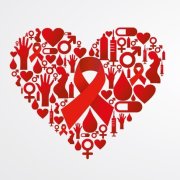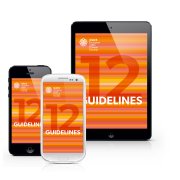Support for displaced Health Care Professionals from Ukraine
- Statement: Ensuring high-quality of HIV Care for displaced people from Ukraine
-

‘Ensuring high-quality of HIV Care for displaced people from Ukraine’
Since the onset of Russia’s aggression towards Ukraine on 24 February 2022, and as of 11 April 2022, more than 4 million Ukrainian people have fled to Poland, Hungary, Slovakia, Romania and the Republic of Moldova[1]. Whilst countries bordering Ukraine have received most of the displaced people so far, it is envisaged that there will be further migration across Europe in weeks to come.
It is estimated that prior to the war there were more than 250 000 people (1% of total population) living with HIV in Ukraine, of whom around 130,000 were receiving antiretroviral therapy.
As the displacement of people from Ukraine escalates, it is imperative that countries across Europe receiving these displaced people are prepared to ensure high standards of HIV prevention, treatment and care.
The Council of the European Union has adopted a Temporary Protection Directive[2] which offers an appropriate response to the present situation by providing immediate protection and rights, including rights to medical assistance.
Partners at European AIDS clinical Society (EACS), together with the Euroguidelines in Central and Eastern Europe (ECEE) network group, the WHO Collaborating Centre at the Centre of Excellence for Health Immunity and Infections (CHIP) and the Public Health Centre, MOH, Ukraine were tasked by the WHO Regional Office for Europe to produce a standardised protocol for the clinical management and medical data sharing for displaced people living with HIV from Ukraine[3].
To ensure that appropriate systems are in place for the clinical management and data sharing for displaced people from Ukraine living with HIV across Europe, it is critical for countries across Europe to consider the following actions:
- urgently develop and deploy national plans to provide free and easily accessible HIV care including the provision of antiretroviral therapy, therapy for co-infections, prevention of opportunistic infections and opiate agonist therapy, where needed, for Ukrainian people.
- have a provision for a network of designated and accessible clinics to provide HIV testing and antiretroviral therapy, and testing and care for viral hepatitis, tuberculosis and sexually transmitted infections. These services need to take into account language, culture and mental health needs of displaced people.
- ensure secure electronic transfer of medical information between Ukraine and receiving countries using the link and form provided[3], and within and between countries to facilitate safe and rapid provision of care.
- hold stocks of antiretroviral therapy to be able to provide at least 90 days of therapy for displaced people in case of onward transit to other EU countries, preferably using the same regimen as the one prescribed in Ukraine.
- take the opportunity to provide easy access to HIV and other blood-borne virus testing for displaced people, as a part of general health screening and for those being admitted to hospital for care.
- provide documentation confirming HIV status and details of tests carried out and antiretroviral therapy dispensed for those transiting onwards within or out of country.
If the considerations above are addressed, we would ensure the highest standards of care for those people living with HIV fleeing Ukraine and that the displacement of people from Ukraine does not have a negative impact on the aspirations of achieving the UN Sustainable Development Goals by 2030.
Click here to consult the protocol.
The statement is now available in Ukrainian, Czech, Polish, Romanian, Hungarian and Slovak
---------------------------------------------------------------------------------------------------------------------------------
[1] Data from UNHCR. Available at: https://data2.unhcr.org/en/situations/ukraine
[2] The Council of the European Union. Council Directive 2001/55/EC of 20 July 2001 on minimum standards for giving temporary protection in the event of a mass influx of displaced persons and on measures promoting a balance of efforts between Member States in receiving such persons and bearing the consequences thereof. Brussels: Official Journal of the European Union; 2001. Available at: https://eur-lex.europa.eu/legal-content/EN/TXT/PDF/?uri=CELEX:32001L0055&from=EN
[3] Standardised Protocol for Clinical Management and Medical Data Sharing for PLHIV among refugees from Ukraine (https://apps.who.int/iris/handle/10665/353083)
- EACS Statement on the war in Ukraine
-
EACS Statement
It is with sadness that we have learned about the war in Ukraine. We would like to extend our support to all our dear friends and colleagues and everyone involved, not least all the people living with HIV and their carers.
At this difficult time, we would urge that all members of EACS, as well as healthcare professionals, healthcare commissioners, the pharmaceutical industry and non-governmental organisations in Ukraine and across Europe to work together to ensure that we can provide all possible support for people living with HIV and their families to ensure:Free and easy access to medical care, psychological support and medicines including antiretrovirals for the treatment initiation, continuation as well as pre-and post-exposure prophylaxis
Free medical insurance for migrant populations from affected areas
Easily available access for infection prophylaxis and vaccines for vaccine-preventable illnesses, including COVID-19 vaccines
Full support for assistance to, and the safety of healthcare professionals providing medical assistance in affected areas
We would strongly encourage the preparation of national plans to support people living with HIV migrating from affected areas and emphasise the need for their rapid implementation.
EACS will stand and work together with our members and partners at this difficult time.
- Useful links
-
- #awarehivUkraine initiative by the EACS Young Investigators (YING): https://awarehiv.com/en/Dare-to-Share-Care/Ukraine
- I-base HIV Bulletin Organisations to support the crisis in Ukraine: https://i-base.info/htb/42419
- Contact information for Ukrainian refugees with living with HIV by ECEE network: https://www.eceenetwork.com/patients
- Free online consultations for people living with HIV from Ukraine (in Ukrainian and Russian): https://help24.org.ua/uk/registration-info
- Doctors needed in a humanitarian centre next to Warsaw: https://humanitarianexpo.com/en/
- Information for people fleeing the war in Ukraine by the European Commission: https://ec.europa.eu
- Are you fleeing the war and looking for help? Do you want to help refugees? https://pomagamukrainie.gov.pl/

20th European AIDS Conference
15-18 October 2025 Paris, France

EACS Guidelines updated
The EACS 12.1 and the app are available for free on


Educational Programme
Training and educating the next generation of clinicians and researchers is an EACS core activity.

EACS Resource Library
Access all scientific content of EACS core activities! (members only)

New Interim Guidance
Interim Guidance on the Use of Statin Therapy for the Primary Prevention of Cardiovascular Disease in People with HIV